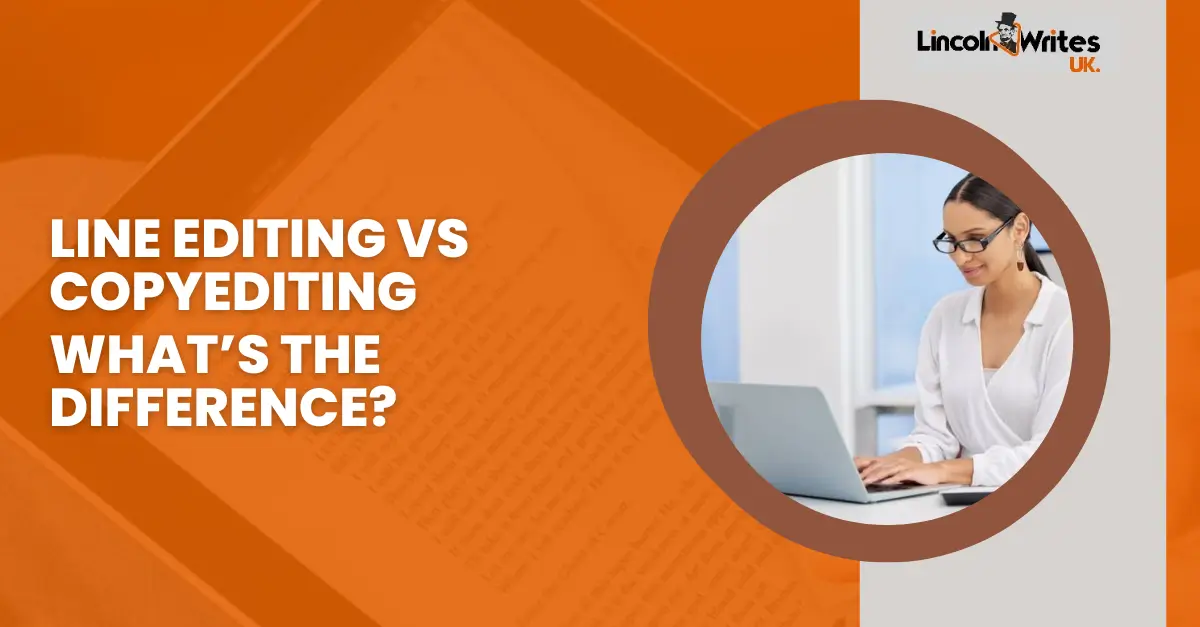If you’re working on your manuscript and find yourself wondering, “Do I need a line editor or a copyeditor?”, you’re not alone. In fact, the terms are often used interchangeably, but they serve very different purposes.
Understanding the difference between line editing vs copyediting is crucial if you’re serious about making your book the best it can be. Both aim to improve your writing, but they focus on different layers of the text. And if you want your final product to be polished and professional (especially before diving into ebook formatting tools or publishing), getting this part right matters a lot.
Let’s break it down in plain English.
What is Line Editing?
Line editing is all about the craft of writing. It focuses on how your ideas are expressed at the sentence and paragraph level. A line editor examines your prose for tone, pacing, clarity, and style. They might reword sentences for better rhythm or remove redundancy to enhance flow.
You might see comments like:
- “This sentence is clunky. Try rephrasing for clarity.”
- “Consider varying sentence length here to keep the reader engaged.”
- “This paragraph feels repetitive. Can you tighten it?”
Line editing is especially valuable when you want your writing to feel strong, clear, and engaging, whether you’re crafting a thriller, a romance, or an in-depth nonfiction title (like one explaining business plan components for a startup).
It’s also critical for anyone trying to strengthen their author platform building, as your writing voice becomes a key part of how you present yourself to readers and professionals alike.
What is Copyediting?
Copyediting comes after line editing and focuses more on the technical details. This is where grammar, punctuation, spelling, and internal consistency get reviewed. A copyeditor checks that everything adheres to a particular style guide (Chicago Manual of Style, AP, etc.) and ensures your manuscript is error-free.
Copyediting addresses things like:
- Subject-verb agreement
- Inconsistent use of names or dates
- Misplaced modifiers
- Punctuation accuracy
While it doesn’t dramatically alter your prose, copyediting is what gives your book that final layer of professionalism, especially important when pitching to agents (and avoiding querying literary agents’ mistakes) or preparing your manuscript for book proofreading services.
What About Proofreading?
Once the editing is done and your manuscript has been formatted, proofreading is your last quality check. It’s about catching minor typos, formatting inconsistencies, and layout issues, things that might’ve been missed in the editing phase or introduced during typesetting.
It’s especially useful if you’re getting ready to publish through ebook formatting tools or print platforms. At this stage, no major changes have been made. You’re simply making sure everything is clean and polished before launch.
How to Know What You Need
Here’s a simple guide to help you decide:
- If you’re refining your storytelling and want to improve sentence flow and tone, Line editing is your best friend.
- If your manuscript reads well but needs grammatical and stylistic cleanup, Copyediting is the next step.
- If you’re finished with all edits and ready to go to print or digital, Proofreading is your final safety net.
Professional book proofreading services often bundle these levels, or at least help you figure out what’s needed based on your manuscript’s current state.
Why It’s Not Just About Grammar
Many authors think editing is just about fixing typos, but it’s so much more. Editing shapes how your message lands, how credible your voice sounds, and how readable your content is.
If you’re writing a memoir, understanding the memoir vs biography structure can influence which kind of edit you need. If it’s your first time documenting your life story, getting help with autobiography structure during the line editing phase can make a massive difference.
Editing and the Bigger Picture
Let’s not forget, editing plays a vital role in everything from blog posts to business documents.
If you’re planning to release a nonfiction title, tie it to your brand’s content strategy. If your blog is part of your funnel, make sure your evergreen blog topics and data-driven article writing are professionally edited, too. It’s all part of building credibility and trust with your readers.
Whether you’re writing persuasive content or developing your book’s sales page, learning from persuasive website copy tips can improve how you communicate across all platforms.
When Ghostwriting or Collaborating
Even if you’ve hired someone through a ghostwriting contract, editing still matters. Ghostwriters capture your voice and ideas, but editors refine that content to make sure it resonates with your audience.
And if you’re unsure where to start, services that help you choose a ghostwriter UK also usually offer editing support, or at least connect you with the right experts for your project.
The same applies when you collaborate with a children’s book illustrator. A clean manuscript makes the design process smoother and more professional.
Editing and Your Long-Term Author Career
High-quality editing impacts more than just one book. It affects your reviews, your repeat readership, and even your potential book royalties in the UK.
If you’re submitting to publishers or agents, a professionally edited manuscript shows that you take your work seriously. It’s one less excuse for them to pass on your project.
And for authors building a career across formats, such as eBooks, blogs, coaching, or courses, editing supports every part of your content ecosystem.
Final Thoughts
Understanding the difference between line editing vs copyediting might seem like a technicality, but it’s one of the most important distinctions you’ll make as an author.
Line editing shapes your voice. Copyediting sharpens your text. Proofreading polishes the final product.
Together, they help your writing stand out, for all the right reasons.
Whether you’re working with book proofreading services, going it alone, or hiring a ghostwriter, remember this: professional editing isn’t a luxury. It’s a necessity, especially if you want your work to resonate, sell, and sustain your writing journey for the long haul.
Let me know if you’d like a visual chart comparing editing stages or a companion guide for self-editing checklists.


